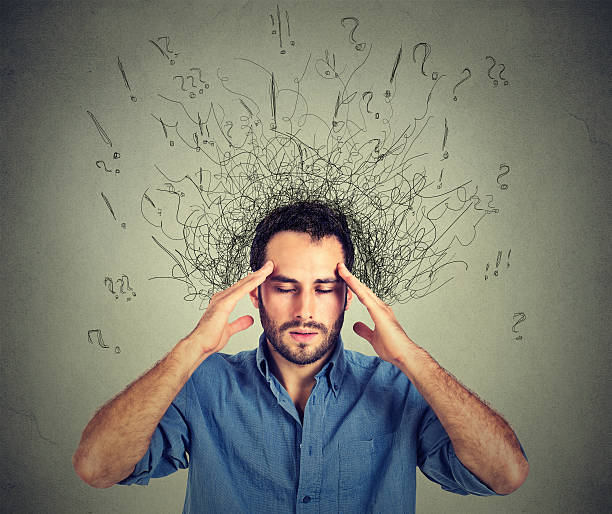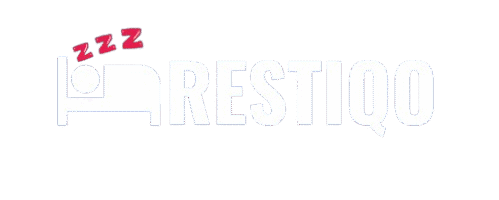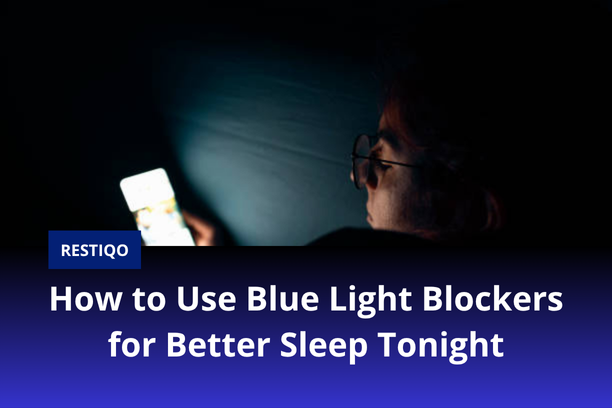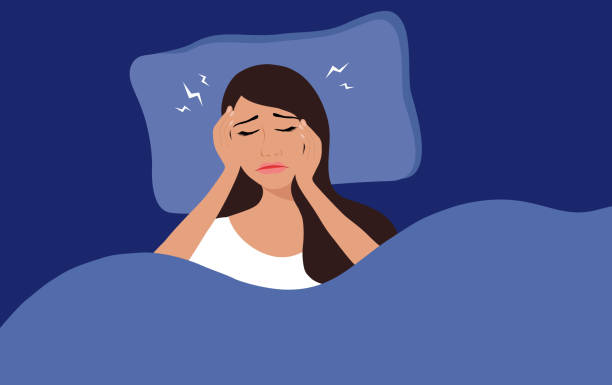
It’s 9:07 AM. You’ve already made 38 decisions
Hit snooze or get up?
Black shirt or blue?
Coffee now or after your inbox bloodbath?
Reply to that Slack message or pretend you didn’t see it?
And that’s before your brain faces anything remotely important.
If you’ve ever hit a wall by lunchtime, stared blankly at your screen for five minutes, or picked the dumbest lunch just to stop thinking… congrats. You’ve experienced decision fatigue — the invisible mental drain that sneaks in early and wrecks your clarity.
Most people try to “push through” with caffeine, willpower, or productivity hacks. But the root problem isn’t your discipline. It’s your sleep habits.
Poor sleep ruins your brain’s ability to recover overnight. It messes with your executive function, slows decision-making, and makes every choice feel heavier than it should.
In this post, you’ll learn how to stop that slow brain bleed using five science-backed sleep tweaks that reset your mental energy and bring back sharp, focused thinking.
Let’s kill decision fatigue at the source: your bedtime.
What Is Decision Fatigue (And Why It’s Wrecking Your Day?)
Decision fatigue is what happens when your brain’s decision-making system gets overworked — like trying to bench press after your arms are jelly from 50 push-ups.
Every choice you make throughout the day — from which email to answer first to whether or not to yell at your coworker — drains a little more mental fuel. That “fuel” is tied to your brain’s executive function, which controls things like attention, reasoning, emotional regulation, and impulse control.
And just like your muscles, your executive function gets tired the more you use it.
Here’s where it gets worse: your brain doesn’t prioritize decisions by importance. It burns energy on dumb little stuff just as fast as it does for big ones. That’s why choosing between five different kinds of toothpaste or debating Uber Eats vs. leftovers can be enough to tip you into mental exhaustion by 2 p.m.
The result? You default to easy choices. You procrastinate. You react instead of respond. Your willpower tanks, and your productivity crashes.
And guess what amplifies all of that? Sleep deprivation.
Sleep isn’t just “rest.” It’s how your brain resets decision-making capacity. When you shortchange it, you’re already playing the game on hard mode by breakfast.
Next up: let’s break down how sleep rewires your ability to make better choices.
How Sleep Directly Impacts Mental Clarity
Sleep isn’t just downtime. It’s prime time for your brain to clean up, reset, and refuel.
REM and non-REM sleep both play vital roles in decision-making, emotional balance, and mental clarity. If you skimp on either, your brain can’t perform its core executive functions — like logic, focus, and impulse control — effectively.
What Happens When You’re Sleep-Deprived?
A study published in the National Library of Medicine found that people who slept fewer than 6 hours for two nights in a row had a reduction in brain activity in the prefrontal cortex — the part of your brain that governs complex decision-making.
Translation: Less sleep, worse decisions.
Here’s what happens cognitively when your sleep is off:
- Your working memory shrinks (you forget names, tasks, and deadlines faster).
- Your impulse control drops (cue late-night snacking or rage-clicking “Buy Now”).
- You struggle with emotional regulation, making you more reactive and moody.
This trifecta of dysfunction doesn’t just make you feel tired. It makes everything feel harder — like trying to solve a Rubik’s cube blindfolded.
And you don’t need to pull an all-nighter to feel the effects. Even one hour less than your ideal sleep window can create measurable cognitive fatigue, which compounds over time as sleep debt.
Here’s the real kicker: your brain doesn’t adapt to chronic sleep loss. You just get used to operating at 60%, thinking that’s your “normal.”
But it’s not normal — and it’s 100% fixable. In the next section, we’ll dig into 5 science-backed sleep habits that protect your mental energy like a firewall for your brain.
5 Sleep Habits That Protect Your Mental Energy
You don’t need a 90-minute bedtime yoga sequence or $600 smart pillow to recharge your brain. You need repeatable, science-backed habits that support your sleep and guard your ability to think clearly.
Here are five of the most effective ones:
1. Set a Consistent Sleep-Wake Schedule
The best no-hype productivity tool? A boring bedtime.
A consistent sleep-wake cycle trains your circadian rhythm, which tells your body when to wind down, produce melatonin, and shift into repair mode.
Research from the Sleep Research Society shows that irregular sleep schedules increase cognitive variability — meaning your brain functions differently from day to day.² No wonder Monday feels like a hangover.
To reset:
- Go to bed and wake up at the same time every day, even on weekends.
- Anchor wake time with sunlight exposure and light movement.
- Use tools like a sleep tracker to catch creeping inconsistencies.
This isn’t about perfection — it’s about giving your brain a rhythm it can rely on.
2. Build a No-BS Wind-Down Ritual
Your brain isn’t a light switch. It’s more like a dimmer.
A 30–60 minute wind-down routine helps your body shift from beta-wave hustle to alpha-wave calm. The problem? Most people scroll themselves to sleep, which does the opposite.
Instead:
- Shut down screens 60 minutes before bed.
- Dim your lights (or use blue light blockers).
- Use a cue-based activity like stretching, reading, or journaling — something you only do at night.
These small signals tell your brain: “Yo, it’s sleep time.”
And yes — that means TikTok has to wait until morning.
3. Leverage REM Sleep with Proper Timing
REM sleep is the stage when your brain makes sense of your day, solves problems, and clears emotional junk. But it mostly happens in the second half of your sleep cycle.
If you’re going to bed at 1 AM and waking at 6, you’re slicing off the REM-rich portion of your night — and that’s when mental clarity gets built.
Try this instead:
- Be in bed by 10:30–11:00 PM to catch optimal REM timing.
- Avoid heavy meals or alcohol close to bedtime (they suppress REM).
- If you must wake early, shift bedtime forward rather than shaving off hours.
Protect REM like it’s your creative director — because it is.
4. Try a 20-Minute Power Nap (the Smart Way)
A well-timed nap can restore mental energy like plugging your brain into a charger — but timing matters.
Aim for:
- 15–25 minutes max (longer = grogginess).
- Scheduled between 1:00 and 3:00 PM, when circadian dips occur.
- A quiet, cool environment (or even a nap app + eye mask combo).
Did you know? A study by NASA found that a 26-minute nap improved pilot performance by 34%. Not bad for something shorter than a coffee break.
5. Upgrade Your Sleep Environment
Want better sleep? Treat your bedroom like a recovery lab, not a secondary office.
Here’s how:
- Keep room temperature between 65–68°F (18–20°C).
- Block out light with blackout curtains or a sleep mask.
- Use white noise machines, fans, or earplugs to buffer noise.
- Remove digital clutter — your phone doesn’t need a pillow.
Little tweaks to your environment can improve sleep efficiency, which is a fancy way of saying: you’ll sleep better without needing more time.
Signs You’re Draining Mental Energy Without Realizing It
Decision fatigue doesn’t always announce itself with fireworks — it creeps in quietly, like a tab left open in your brain. The good news? Once you know what to look for, you can start fixing it.
Here are the subtle (but telling) clues:
1. You Crash Midday, Even After a Full Night’s Sleep
If you’re dragging yourself through the 1–3 PM slump, it’s not just about lunch. It could be a sign your sleep lacks quality — especially REM and deep sleep, which handle cognitive recovery.
This type of crash often shows up even when you’re technically getting “enough hours.”
2. You Crave Sugar, Caffeine, or Dopamine Hits
Can’t stop reaching for cookies, coffee, or Instagram reels? That’s your prefrontal cortex crying for help.
Poor sleep impairs your brain’s ability to regulate cravings and decision-making. The more tired you are, the more impulsive you become — which means your willpower tank is on “E.”
3. You Procrastinate on Stupidly Simple Tasks
Putting off that 2-minute email? Can’t decide what to eat?
That’s cognitive overload at work. Your brain is too fried to prioritize, so it defaults to delay or indecision. (Classic sign of executive function fatigue.)
4. You Snap Over Nothing
Sleep affects emotional regulation. Less sleep = less patience. If you find yourself raging over slow Wi-Fi or feeling irrationally irritable, your brain is waving a red flag.
Bonus sign: If you start arguments in your head with imaginary people, that’s a dead giveaway.
5. You’re Stuck in a Loop of “I’ll Do Better Tomorrow”
You promise yourself you’ll sleep earlier… but then binge Netflix or scroll endlessly instead. That’s not laziness — it’s ego depletion caused by decision fatigue and lack of recovery.
It’s hard to make good choices when your brain feels like soggy toast.
Build a Sleep System That Works for Your Brain
Generic sleep advice is like handing out one-size-fits-all shoes — great if you’re average, terrible if you’re not. What you need is a custom sleep system that matches your brain, lifestyle, and biological wiring.
Let’s break it down.
Track What Helps (and What Hurts)
Start by observing your sleep patterns for a week. Use a sleep tracker app or old-school notebook. Each morning, jot down:
- What time you fell asleep and woke up
- How many times you woke during the night
- Energy levels in the morning and afternoon
- What you did the hour before bed
This personal data beats any sleep “hack” from Reddit. It helps you spot patterns like “too much blue light = restless night” or “journaling = lights out in 10 minutes.”
Adjust by Chronotype, Not Myths
Are you a night owl forcing yourself to become a 5 AM warrior because some productivity guru said so?
Stop. You’re not broken — just wired differently.
Your chronotype (aka your body’s natural sleep-wake rhythm) affects when you feel alert, focused, and tired. Forcing yourself into a schedule that fights your biology only leads to more stress, worse sleep, and — yep — decision fatigue.
If you thrive from 10 AM to 8 PM, embrace it. The goal isn’t to follow an influencer’s morning routine. It’s to build one that actually works for your brain.
Install a Pre-Bed Ritual That Sticks
We already covered wind-down habits earlier, but here’s the key: make it stupid simple and consistent.
Try this 3-step ritual:
- 9:30 PM — Shut off screens and dim lights.
- 9:45 PM — Do a brain dump in a notebook or app (offload racing thoughts).
- 10:00 PM — Do one calming action (stretch, read, or breathe).
Repetition is what turns this into a cue for sleep, not the complexity of the ritual itself.
Frequently Asked Questions About Decision Fatigue and Sleep
Can poor sleep actually cause decision fatigue?
Yes. Lack of quality sleep wrecks your brain’s executive function — the part responsible for focus, logic, and self-control. When sleep-deprived, your brain burns through mental fuel faster, making you impulsive, indecisive, and more likely to snap over the tiniest choice (like choosing between oat milk or almond milk).
How much sleep do I need to avoid mental fatigue?
Most adults need 7–9 hours of sleep per night. Anything under 6 hours consistently is linked to lower cognitive performance, poor judgment, and increased stress levels. Quality also matters — shallow, interrupted sleep won’t cut it, even if it lasts eight hours.
What’s the best time to nap for better decision-making?
The sweet spot is early afternoon, between 1 PM and 3 PM. Aim for 20–30 minutes max to avoid deep sleep grogginess (a.k.a. sleep inertia). Done right, power naps can improve alertness, boost memory, and restore mental energy.
Does REM sleep really affect productivity?
Absolutely. REM sleep is where your brain processes emotions, decisions, and memory consolidation. If you cut your sleep short (or wake up during REM), you’ll wake up foggy and emotionally off — not exactly the mindset you want when tackling important choices.
What’s a simple bedtime ritual to improve mental stamina?
Try this: 30 minutes before bed, dim the lights, put your phone out of reach, and journal or stretch. This helps shift your brain from high-alert mode into relaxation and repair. Bonus points if you do it at the same time every night — consistency is the real superpower here.
Conclusion:
Decision fatigue doesn’t just “happen.” It builds — quietly and consistently — when your brain doesn’t get the recovery time it needs.
Sleep isn’t just a break. It’s a daily brain reboot.
By dialing in your sleep hygiene, stacking consistent pre-bed rituals, and learning how to nap without wrecking your energy, you’re giving your executive function the armor it needs to cut through mental clutter.
The more you optimize your sleep, the fewer bad decisions you’ll make and the more mental clarity you’ll unlock.
Now’s the time to fix the nighttime habits stealing your stamina.





